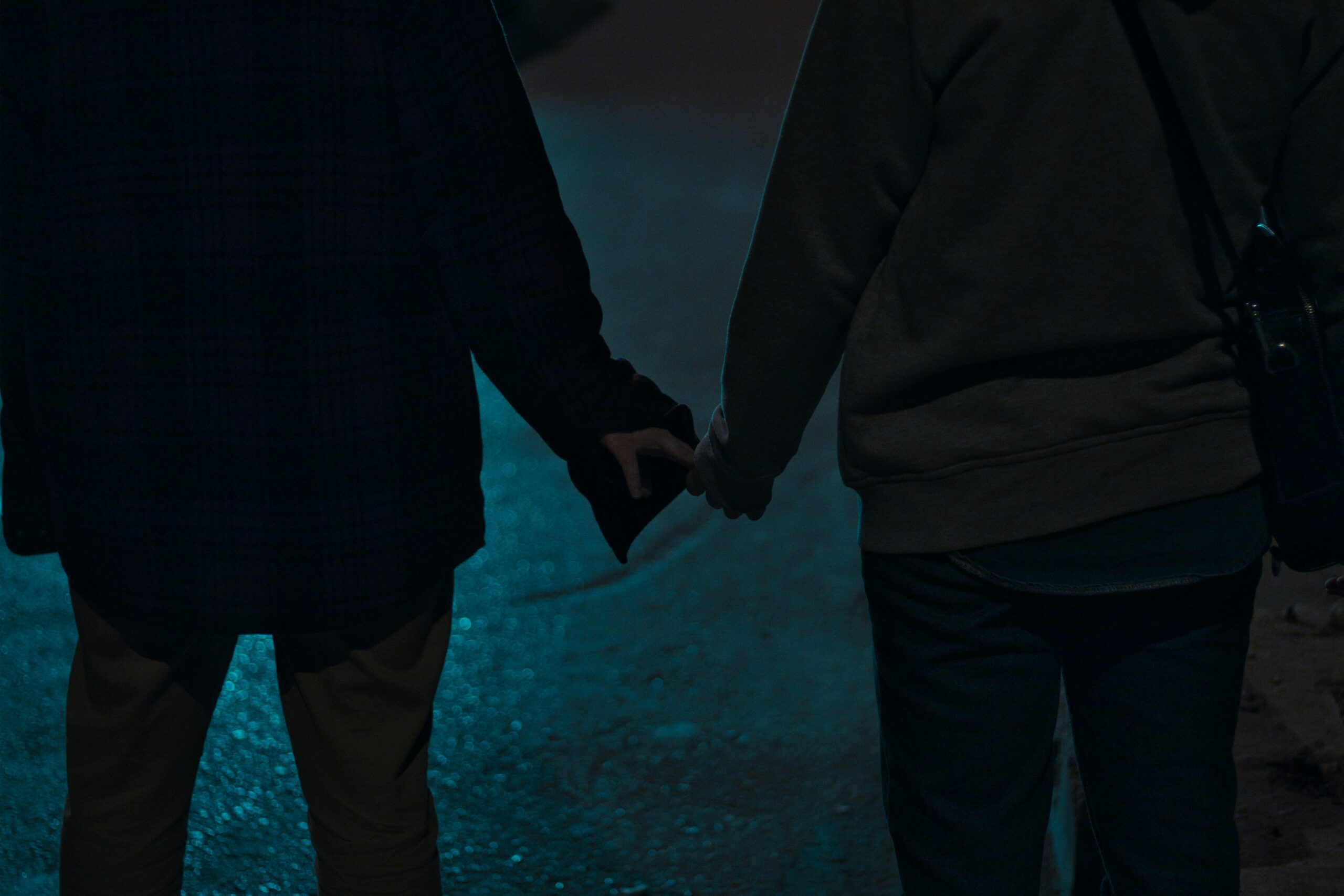| Sayan Sarkar | October 2025 | Short Story |
26th January 2022
A cold Wednesday morning in the City of Joy. 72 years have passed since India became a Republic on this very day. Hordes of people have thronged the streets, visiting tourist hotspots like the Alipore Zoo, Science City, and the Indian Museum. The scene is quite similar in Kolkata’s twin city of Howrah, where the major tourist attraction is the Acharya Jagadish Chandra Bose Indian Botanic Garden.
It is 11:00 AM, and Samiran gets down from a bus in front of the garden gates. He is in his mid-40s, tall and lanky, with curly hair and a thick mustache. He buys two tickets and enters the garden. “Come along, son,” he looks back and calls. His son, busy looking at the information board beside the gate, runs to him and holds his hand.
“Listen, Arko,” Samiran says, “There will be a huge crowd here today. Stay very close to me. Or else you might get lost. Do you understand?”
“Yes, Dad,” his son nods in assent, unable to contain his excitement.
Samiran looks at his son. Five-year-old Arko loves nature, and he has been stoked ever since his father informed him about coming to this place. Samiran smiles at his innocent face.
The boy means the world to him, and seeing him happy makes all his worries go away. Since his wife left him for another man three years ago, he has kept Arko close. Arko had slowly become his anchor, his reason to keep going.
The father-son duo makes their way into the interiors of the garden. They walk along a carpet of green grass, flanked on both sides by tall trees of various shapes. Sunrays shine through the foliage, creating intricate patterns on the ground beneath.
“What’s that tree?” Arko asks, pointing to a towering tree in the distance.
“That is Mahogany – its wood is used all over the world for making high-quality furniture,” Samiran explains.
They approach a pond, and Arko jumps up and down in excitement when he sees the giant water lilies. “Look, Dad!” he exclaims, “They look just like giant green plates!” To his amazement, a sparrow flies down and sits on one of these green plates, hops around in search of insects, and flies away as suddenly as it appears.
A family of swans walks along the edge of the water body in search of food, interrupted suddenly by the frenzied shouts of Arko, as he runs towards them at full speed.
“Arko! Come back here!” his father shouts from a distance. A few visitors look in his direction with curious eyes. Samiran feels the stares and draws his son away from the spot, feeling rather ashamed at creating a scene. But Arko continues giggling.
They soon approach an avenue with dense foliage on both sides. A multitude of bird calls fills the air, creating an unorchestrated symphony of high-pitched notes. As they walk along, Samiran takes the opportunity to familiarize his son with the different types of trees. Arko is very fascinated with the cactus, and it takes a lot of effort from Samiran to prevent his son from touching the cactus spines.
After a little while, the father-son duo comes out on a wide clearing. The garden is littered with people of all ages – some sitting in the shade and taking a well-deserved rest, while others are playing with their children. In front of them, in the distance, is a beautifully decorated urn made of white marble.
“Look at that beautiful urn, son,” Samiran draws his son’s attention to the monument. “That is the Kyd monument — a memorial urn dedicated to the founder of this botanical garden. Look at the intricate decorations. Astounding!” They move closer to the monument, and Arko gazes at it with wonder and amazement in his eyes.
“Dad, when will we visit the old banyan?” he asks, as they continue moving forward.
“Almost there, son. Just a little bit further,” replies his father.
Within a couple of minutes, they arrive at their destination. The ancient banyan tree towers before them, its massive canopy spreading majestically in all directions.
“Here we are, son – the Indian banyan, Ficus Benghalensis, in all its glory.”
Arko stands transfixed, his mouth ajar in awe, trying to take in the view.
A metal fence guards the perimeter, preventing people from getting too close to this living relic. There is a large crowd along this fence — people are busy taking photos and admiring the view.
“Stay close to me,” warns Samiran, as they approach the fence.
They move along a line, watching through the fence and admiring the countless roots of the tree, which resemble thick ropes hanging down from the branches. Samiran pauses in front of the signboard, taking a moment to read the information displayed. Upon finishing, he turns towards his son, meaning to educate him about the tree.
But Arko is gone! Samiran scans his surroundings thoroughly, but he cannot see his son.
Samiran panics.“Arko! Where did you go? Arko!” he shouts, pushing his way through the crowd. He covers the entire perimeter of the tree, desperately calling out his son’s name, but to no avail. By this time, a crowd had gathered around him. He describes his son’s appearance, but no one seems to have seen him. Samiran slumps to the ground, shaking with fear and apprehension.
“Samiran! Is that you?” a familiar voice suddenly rings out in the crowd.. He looks up at the dozens of unknown faces around him, trying to pinpoint the face that belongs to the familiar voice.
There — at the far end of the crowd — he finally finds who he is looking for. A tall, well-built man stands looking down at him with wide-eyed surprise. It’s Mrinal, his long-time friend. Samiran jumps to his feet and rushes towards him.
“Mrinal! I can’t find Arko! I can’t find my son! Please, help me!” he pleads, tightly squeezing his friend’s arm and sobbing like a child.
Mrinal is stunned. He stares at Samiran in silence, struggling to process the words. He had been out of the city for two months and returned only a couple of days ago. He hadn’t seen Samiran in around three months.
“Your son? You can’t find your son Arko?” he repeats.
“Yes! He was here with me just a few minutes ago! One minute we are looking at the banyan tree together, the next minute I can’t find him anywhere!” Samiran cries, his voice dazed and trembling.
“Okay, okay! Come with me. I will help you,” Mrinal responds. He takes Samiran by the arm and pulls him through the crowd.
Once they reach a secluded space, Mrinal takes a hard, long look at Samiran. He is still shaking, looking around nervously in all directions. “Arko was here with you today?” he asks again.
“Yes! Yes!” replies Samiran frantically. “I already told you. Please help me search for him.”
Mrinal agrees, and the two spend the next half hour searching for the boy. But there is no sign of him.
“Let us go to the police!” Samiran says firmly. “There is no other option!”
“Okay, let us go,” Mrinal replies.
As they approach the exit, Mrinal turns to Samiran: “Wait here, I will call a cab.” A few minutes later, he returns in a yellow taxi, seated beside the driver.
“Get in,” he calls over his shoulder.
As Samiran slides into the back seat, the taxi begins moving.
“I called someone before booking the taxi — someone who might be able to help better than the police,” Mrinal informs his friend.
“Really? Who is it?” enquires Samiran, curious and hopeful at the same time.
“You’ll see soon enough,” Mrinal replies.
The taxi hurtles towards Kolkata at breakneck speed as Samiran silently prays to God to bring his son back.
Forty minutes later, the car comes to a stop in front of an old two-storeyed house near Bhowanipore. The house seems vaguely familiar to Samiran, but he cannot quite place it. After paying the fare, Mrinal gets down and beckons Samiran to follow him. He walks up to the front porch and rings the bell.
The door is opened by a man with a head full of white hair, dressed in a white kurta. Behind his spectacles, a sharp glint in his eyes betrays a keen mind at work. Samiran finds this person very familiar, but is unable to place him.
“Come in,” the man says in a commanding voice. The two friends follow him to his living room and settle down on the sofa. The man sits on a chair, facing the two visitors. He stares intently at Samiran.
Samiran wastes no time in explaining the situation to him. He pleads with the man to help him get back his son, despite not knowing who he was or how he could help.
“I know where your son is, Samiran,” the man says quietly, once Samiran finishes his pleas.
“Where? Where is he?” Samiran jumps out of the sofa in excitement.
The man raises his right arm and points to his temple.
Samiran looks on, confused.
“Your son is in your mind, Samiran,” the man explains kindly. “He has been in your mind for the last twelve months.”
Samiran stares at the man with a crazed look. “Are you making fun of me? What kind of tomfoolery is this!” He rises, agitated. “If you can’t help me, don’t waste my time,” he roars.
“Calm down, Samiran,” the man replies, his voice still quite composed. “Your son died one year ago – in an accident. He couldn’t have been with you today.”
His words ripple through Samiran like shockwaves across exposed nerves — swift, searing, and unrelenting. He slumps onto the sofa.
“What on earth are you talking about? He was with me only a short while ago!” he cries, his face twisted with pain and disbelief.
“No, he wasn’t. He was only in your mind. Your mind is playing tricks on you, Samiran; it has been doing so for quite some time now. After your divorce, you clung to your son as a support. But when you lost him last year, your mind could not bear it, and your brain created a fantasy to help you cope with the reality. A fantasy where your son is still alive and living with you,” the man explains gently.
“But how do you know so much about me? And why do you seem so familiar?” Samiran asks, still unable to identify the man sitting across from him.
“You don’t remember, do you?” the man smiles sadly. “I am your psychiatrist, Dr. Anirban Mukherjee.”
A sudden flash of realization floods Samiran’s mind. The name opens the floodgates of memories hidden in his subconscious. Fragments of the past flicker before his eyes. He remembers his son’s death and the unbearable grief he had to endure. He remembers coming to Dr. Mukherjee seeking respite from his mental agonies. But then his memories start to fade again. He clutches his head and closes his eyes in grief.
Dr. Mukherjee continues, “I have been treating you for almost a year for psychotic depression. You used to visit me once every week to discuss your progress and share your thoughts. Your friend,” Anirban points at Mrinal, “had also accompanied you on several occasions. But you suddenly stopped coming last month. I tried calling you several times, but could never reach you.
“Earlier today, I got a call from your friend —completely out of the blue. He informed me that you’d been hallucinating in the Botanical Garden. I asked him to bring you to me immediately. Seeing you in this condition, I’m quite certain you’ve stopped taking your medications for quite some time. That’s why you started seeing your son again.
“That’s also why you forgot about me. Your mind perceives me as a threat — someone trying to pull you out of the fantasy — so it has tried to erase me from your memories.”
Samiran sits silently, still trying to process everything. The grief of losing his son crashes over him again like a tidal wave, leaving him struggling to control his emotions.
Dr. Mukherjee gets up from his chair and approaches him. He gently puts his hand on Samiran’s shoulder and says in a tender voice, “You will get better, Samiran. But you must listen to everything I say. If you falter, you risk being dragged into an unfathomable darkness with no escape.
Do you believe your son would want you to live like this if he were alive?”
Samiran looks up at his doctor, his eyes filled with tears.
“Yes, Samiran. We’re here for you. Don’t worry. Things will be alright,” says Mrinal, who had been sitting silently till now. He moves closer to his friend and assures him in a calm voice.
Samiran closes his eyes again. There, inside the quiet room in Bhowanipore, he feels his son slipping away — vanishing into the vast canopy of the great banyan tree of the botanical garden.
But this time, Samiran doesn’t call him back. He lets him go — watching as the boy fades beyond the numerous tap roots into the unknown.
Surrounded by his friend and his psychiatrist, Samiran has once again found the strength to accept the truth. To try to move on and live — not in grief, but in memory, and for the love of the son that he lost.
_________________________

Sayan Sarkar was born and raised in Kolkata. He earned his B. Tech from the Institute of Engineering & Management (IEM), Salt Lake, and his Master’s and Ph.D. from Jadavpur University. Currently, he serves as an Associate Professor in the Department of Electronics and Communication Engineering at IEM, Salt Lake.
Though an engineering academic by profession, Sayan is a passionate reader and lifelong learner. He enjoys immersing himself in books and learning new things. He primarily writes fiction, aiming to entertain and inspire readers around the world with his storytelling.
_________________________
Photo via Wikimedia Commons
Find MeanPepperVine on Instagram @MeanPepperVine




Wonderful psychological thriller which ends with a very beautiful note. After entry of Mrinal it was predictable that Arko is no more but the ending with a psycholigical condition of a person touched me a lot.
Beautiful Story.
Loved every bit. A wonderful, emotional read.
Thank you for your positive feedback!